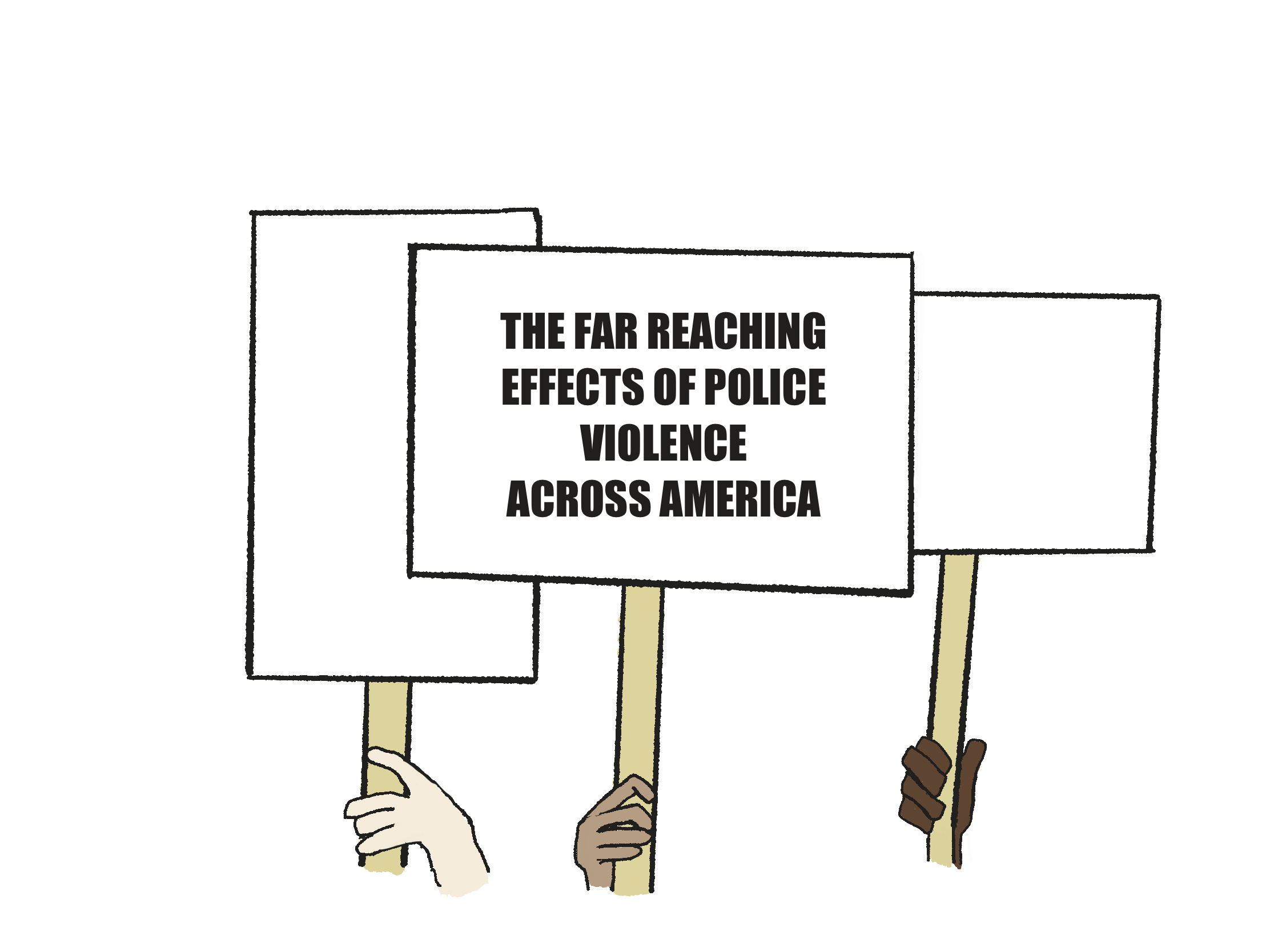Twenty percent of women are sexually assaulted in college. Twenty-four percent of trans and gender nonconforming students are sexually assaulted in college. Seven percent of men are sexually assaulted in college.
These numbers don’t even account for the estimated 10% of survivors that choose not to report their assault.
These statistics have reflected the status quo of college sexual assault. After the Obama administration’s “Dear Colleague” letter in 2011 pushed college administrators to take a heavier hand in enforcing Title IX, some steps have been taken to combat sexual assault on campuses, but not much progress has been made.
Jessica Ladd, a sexual assault survivor and creator of Callisto, a “technology to combat sexual assault, empower survivors, and advance justice,” has taken great leaps to change that. After the negative experience of reporting her own assault in Pomona College, an experience she described to NPR’s Anya Kamenetz as “more traumatic than the assault,” Ladd felt “like I didn’t have control. A lack of agency. I wasn’t believed and ended up regretting reporting.” She tried to push the assault to the back of her mind, got her degree in epidemiology and worked in the field of STD prevention. A renewed call to action was sparked, however, when the conversation around sexual assault on campus began to change and the Obama administration started to direct colleges to take stronger action.
Developed from contributed input by various anti-sexual assault advocacy and activists groups, alongside interviews with 43 survivors and over 100 other individuals aged 18 to 30, Callisto was born. Its pilot system was first introduced in 2015 to the Pomona College and University of San Francisco campuses. Over the course of the year, reports of sexual assault quadrupled and the power of the technology made itself clear. The next colleges to implement it were Coe College and Central College in Iowa, followed by St. John’s University, Cansius College, and Hobart and William Smith Colleges in New York. Today Callisto has been adopted by fourteen institutions, including Stanford, University of Oregon, and the University of Southern California.
Callisto has established itself as an impactful tool to combat sexual assault and support survivors. “Our systems are designed to detect repeat perpetrators and to empower victims to make the reporting (or not reporting) decision right for them,” as stated on Callisto’s website. Callisto offers three options for victims: they can choose to report the assault to the school’s Title IX coordinator by writing and submitting the account electronically; type an account of the assault, recording “time-stamped” details while the incident is clear in memory and saving the report for later if the victim chooses to submit it to authorities; and, the unique feature allowing survivors to report the assault only if the perpetrator has been previously reported and is matched on the Callisto database. This allows a recorded account of violators and the ability to identify serial assailants, providing victims with a sense of security in numbers.
The Callisto page writes, “Knowing that you’re not alone tends to change a lot– the way you frame your experience, your motivation to take action, the probability that taking action will lead to risk for yourself or protection for your community.” This is the first technology to identify repeat perpetrators. Callisto states that 90% of assailants are repeat offenders. Not only does this identify the worst of the worst, the ‘matching’ option allows victims to feel more comfortable with choosing to report when they see that their assailant has violated multiple people. “For a lot of victims, knowing they are not the only one can be an important part of deciding to disclose,” says Ladd to Kamenetz, “How do we start to give power back to victims? One of the ways is to help them find each other.” This phenomenon has recently been highlighted by the floods of #MeToo posts which saw one victim’s voice emboldening several more to speak out.
Callisto is one of the many companies entering a growing market of efforts to combat sexual assault. Not all of these are equal, however. Several online programs are selling their products to schools at high prices after the legislative actions of the Obama-era threw administrators into a frenzy. Sharyn Potter, researcher at the University of New Hampshire said to Tovia Smith with NPR, “Every other day there’s a new group sprouting up offering slick advertisements and products…corporations know that these administrators are panicking…and shopping.” While some lengthy programs that teach students about prevention and consent claim to inspire new attitudes, there are many skeptics. “These quick-and-dirty programs online are really good at marketing their product, but I’m not at all convinced that they’re effective at doing much of anything except documenting that policy has been met,” said John Foubertt, a professor who studies prevention and runs programs of his own at Oklahoma State University, to Smith.
There are also various technologies like Callisto that have sprung up in response to this new market. Mark Lissack, a former Wall Street banker and now social scientist has decided to cash in on the trend with his company We-Consent, which offers a variety of apps claiming to promote consensual relations and combat assault. The We-Consent™ app records students consenting. Smith writes, “A breathy female voice with a British accent asks the user to ‘say the name of the person with whom you would like to have sexual relations.’ Then the app announces to the other person, that so-an-so ‘would like to have sexual relations with you’ and asks for consent. If all goes well, the app ends with the sultry female voice announcing, ‘Have Fun!’” The app was first sold for $5 a year and in bulk packages to universities on Lissack’s site because Apple refused to sell the product in the App Store, saying it was “icky.” Another We-Consent app has been unfortunately titled, I’ve-Been-Violated and suggests that the victim report their story as soon as they’re in a safe space. The narrative is recorded with video and audio and is time- and geo- stamped, but the victim is unable to access or change the account, allowed only to transfer it to “the appropriate authorities” if he or she chooses to report the assault. The app’s claimed goal is to “record contemporaneous evidence [and]…eliminate credibility questions” if the report is filed a significant time after the incident occurs. Nora Caplan-Bricker wrote in her XX Factor article, “Even if its method of taking video and audio from an extremely vulnerable moment and encrypting it offline is intended to silence the doubts of the ‘appropriate authorities,’ it also perpetuates the message that a survivor can’t be trusted not to meddle with her account.” These apps both compound perceptions of deceptiveness surrounding sexual assault and over-simplify the concept of what consensual and comfortable sexual relations are.
These new programs and technologies have reaped very little progress and are not sensitive to the victims of assault. Callisto, by contrast, sets itself apart with its developers and leaders, its mission statement, and the visible impacts made on its users. The non-profit organization that created and manages the technology, Sexual Health Innovations, is run by an advisory board comprised of activists, public health officials, college professors, and sexual assault survivors. Jessica Ladd told Tyler Kingkade with the Huffington Post, “We want to be clear: This is by survivors, for survivors and us understanding and having empathy for the trauma that survivors go through after a sexual assault and just how scary the reporting process is.” Callisto’s vision is having real effect on campuses. Survivors using their software are five times more likely and are four times faster to report than the national average (four month wait versus 11 months). 15% of victims reported being assaulted by the same perpetrator. Even if survivors choose simply to record their account without reporting and remain anonymous, the app still informs colleges with more accurate rates of assault, along with when or where assaults are more frequently occurring.
People like Jessica Ladd who are mindful of the trauma of sexual assault and provide the proper tools and support for survivors are becoming increasingly crucial in recent times. Betsy DeVos, Trump’s selected secretary of education, has emphasized a need for balanced empathy and rights between victims and the accused, countering the progress set forth by the Obama administration. Callisto is one of the ways that society can implement the right thoughtfulness, assistance, and security to victims that deserve it by being empathetic and progressive. The company plans to expand its platform to support professional spheres as well as military branches and academies. Their ultimate goal is to create a central site that survivors can access whether on campus or at work to learn about their rights, tell their story, and connect with each other securely. Callisto writes on its website, “It’s time we change the equation– by giving victims the options and information and support they need, by allowing them to disclose in their own time and in their own way, and by safely connecting victims of the same perpetrator together to validate each other’s experiences and take action. We believe that by empowering victims of sexual harassment and assault, we can support their well-being and change the culture of sexual violence that has persisted for far too long.”
This article originally appeared, titled “Callisto: A Combatant Against Sexual Assault,” in the print edition of our February 2018, issue.





